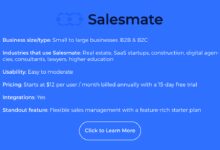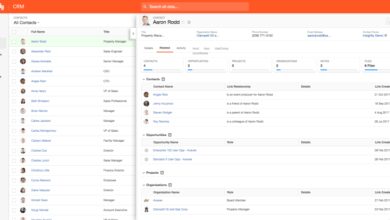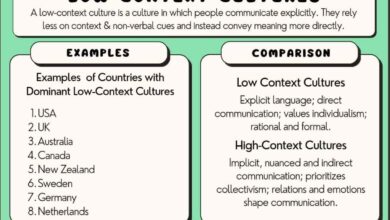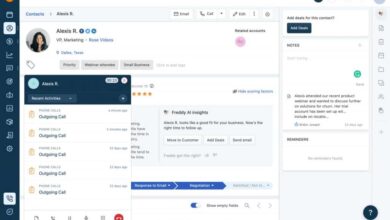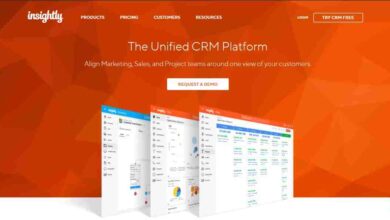Sales CRM Software for Small Business: 7 Powerful Tools to Skyrocket Growth
Running a small business? You need every edge to stay ahead. Enter sales CRM software for small business—your secret weapon to organize leads, close deals faster, and grow smarter.
Why Sales CRM Software for Small Business Is a Game-Changer

Small businesses operate in a fast-paced, competitive environment where time and efficiency are everything. A Sales CRM software for small business isn’t just a luxury—it’s a necessity. It centralizes customer data, automates repetitive tasks, and provides insights that help you make smarter decisions. Without one, you’re likely relying on spreadsheets, sticky notes, or memory—none of which scale well.
Centralized Customer Data
One of the biggest challenges small businesses face is scattered customer information. Sales CRM software for small business consolidates all customer interactions—emails, calls, notes, purchase history—into one accessible platform. This means your sales team can quickly pull up a client’s history without digging through inboxes or files.
- Eliminates data silos across departments
- Enables quick access to customer preferences and pain points
- Improves collaboration between sales, marketing, and support teams
According to Salesforce’s State of Sales Report, high-performing sales teams are 2.2x more likely to use CRM systems to track customer interactions.
Automation of Routine Tasks
Time is your most valuable resource. Sales CRM software for small business automates tasks like follow-up emails, appointment scheduling, and lead assignment. This frees up your team to focus on building relationships and closing deals, not administrative work.
- Automated email sequences nurture leads without manual input
- Task reminders ensure no opportunity slips through the cracks
- Workflow automation reduces human error and increases consistency
“CRM automation can save sales reps up to 40% of their time on administrative tasks.” — HubSpot Research
Top 7 Sales CRM Software for Small Business in 2024
Choosing the right CRM can be overwhelming. To help you decide, we’ve compiled a list of the 7 most effective Sales CRM software for small business—each offering unique features, scalability, and affordability.
1. HubSpot CRM
HubSpot CRM is a favorite among small businesses for its intuitive interface and powerful free tier. It’s not just a CRM—it’s a full sales, marketing, and service platform that grows with you.
- Free forever plan with essential CRM features
- Seamless integration with email, calendar, and social media
- Advanced analytics and reporting tools in paid tiers
HubSpot’s ecosystem allows small businesses to scale without switching platforms. Learn more at HubSpot CRM.
2. Zoho CRM
Zoho CRM offers a robust set of tools tailored for small to mid-sized businesses. Its AI-powered assistant, Zia, helps predict sales outcomes and recommends next steps.
- Highly customizable workflows and pipelines
- AI-driven insights for smarter decision-making
- Strong mobile app for on-the-go access
Zoho integrates with over 40 business applications, making it a flexible choice. Visit Zoho CRM to explore its features.
3. Salesforce Essentials
Salesforce, the global CRM leader, offers Salesforce Essentials—a simplified version designed specifically for small businesses with up to 10 users.
- Cloud-based with real-time data access
- Pre-built sales processes and automation
- Integration with email, calendar, and third-party apps
While pricier than some alternatives, its scalability makes it a smart long-term investment. Check it out at Salesforce Essentials.
4. Pipedrive
Pipedrive is built by salespeople, for salespeople. Its visual sales pipeline makes it easy to track deals and forecast revenue.
- Drag-and-drop interface for managing deals
- Activity reminders and goal tracking
- Strong integration with Gmail, Outlook, and Zoom
Perfect for small teams focused on closing deals. Learn more at Pipedrive.
5. Freshsales (by Freshworks)
Freshsales combines CRM functionality with AI-powered insights and a built-in phone system, making it ideal for sales-heavy small businesses.
- AI-based lead scoring to prioritize hot prospects
- Integrated voice and email within the platform
- Visual deal pipeline and timeline view
Its clean design and automation features reduce onboarding time. Explore at Freshsales.
6. Insightly
Insightly stands out for its project management integration, making it perfect for service-based small businesses that manage client projects.
- CRM + project management in one platform
- Workflow automation and relationship linking
- Mobile app with offline access
It bridges the gap between sales and delivery teams. Visit Insightly for details.
7. Agile CRM
Agile CRM offers an all-in-one solution with marketing, sales, and service tools at an affordable price.
- Free plan for up to 10 users
- Marketing automation and web tracking
- Telephony and email integration
Best for startups and solopreneurs on a budget. Learn more at Agile CRM.
Key Features to Look for in Sales CRM Software for Small Business
Not all CRMs are created equal. When evaluating Sales CRM software for small business, focus on features that deliver real value without overwhelming your team.
User-Friendly Interface
A CRM should simplify work, not complicate it. Look for platforms with intuitive dashboards, drag-and-drop functionality, and minimal learning curves.
- Mobile responsiveness for remote access
- Customizable views to match your workflow
- Onboarding tutorials and customer support
A study by Nucleus Research found that user adoption increases by 40% when CRM systems are easy to use.
Integration Capabilities
Your CRM shouldn’t exist in a vacuum. It should sync with tools you already use—email, calendar, accounting software, and marketing platforms.
- Native integrations with Gmail, Outlook, Slack, and Zoom
- API access for custom integrations
- Zapier or Make.com compatibility for automation
“Businesses that integrate their CRM with other tools see 30% higher productivity.” — Gartner
Scalability and Customization
Choose a CRM that grows with your business. You don’t want to migrate data and retrain staff in a year.
- Flexible pricing tiers based on users and features
- Custom fields, pipelines, and automation rules
- Role-based access control for team management
Scalability ensures long-term ROI and reduces churn.
How Sales CRM Software for Small Business Boosts Sales Performance
It’s not just about storing contacts. Sales CRM software for small business directly impacts your bottom line by improving efficiency, accuracy, and customer relationships.
Improved Lead Management
CRMs help you capture, score, and nurture leads effectively. Instead of losing prospects in a spreadsheet, you can track their journey from first contact to close.
- Automated lead capture from web forms and emails
- Lead scoring based on engagement and behavior
- Drip campaigns to keep prospects engaged
With proper lead management, small businesses report a 30-50% increase in qualified leads.
Enhanced Sales Forecasting
Accurate forecasting helps you set realistic goals and allocate resources wisely. CRM analytics provide real-time insights into pipeline health and expected revenue.
- Visual dashboards showing deal stages and values
- Predictive analytics using historical data
- Custom reports for weekly or monthly reviews
According to Capterra, 65% of sales teams using CRM report improved forecasting accuracy.
Stronger Customer Relationships
A CRM helps you personalize interactions by remembering customer preferences, past purchases, and communication history.
- Track all touchpoints across email, phone, and social media
- Send personalized follow-ups based on behavior
- Identify upsell and cross-sell opportunities
“Personalized experiences increase customer retention by 25%.” — McKinsey & Company
Common Challenges and How to Overcome Them
Even the best Sales CRM software for small business can fail if not implemented correctly. Here are common pitfalls and how to avoid them.
Low User Adoption
Employees may resist using a new CRM if it’s too complex or doesn’t add value to their daily tasks.
- Involve the team in the selection process
- Provide hands-on training and ongoing support
- Start with core features and expand gradually
Tip: Gamify CRM usage with rewards for data entry and deal updates.
Data Migration Issues
Transferring data from spreadsheets or legacy systems can be messy and time-consuming.
- Clean your data before migration (remove duplicates, standardize formats)
- Use CSV import tools or professional migration services
- Test the data in a sandbox environment first
Most CRM providers offer free migration assistance for small businesses.
Over-Customization
While customization is powerful, too much can lead to complexity and slow performance.
- Stick to essential custom fields and workflows
- Review customizations quarterly for relevance
- Train new users on standardized processes
Remember: Simplicity drives adoption.
Implementing Sales CRM Software for Small Business: A Step-by-Step Guide
Rolling out a CRM doesn’t have to be daunting. Follow this proven process to ensure success.
Step 1: Define Your Goals
What do you want to achieve? Common goals include:
- Reducing lead response time
- Increasing conversion rates
- Improving customer retention
Clear goals help you choose the right CRM and measure success.
Step 2: Evaluate and Select a CRM
Compare 3-5 options based on:
- Features vs. budget
- User reviews and ratings
- Free trials and demos
Use comparison sites like G2 or Capterra to read real user feedback.
Step 3: Plan Data Migration
Export your existing customer data, clean it, and prepare it for import. Most CRMs support CSV uploads.
- Map fields from your old system to the new CRM
- Assign a team member to oversee the migration
- Backup your data before importing
Step 4: Train Your Team
Conduct live training sessions, create quick-reference guides, and assign CRM champions.
- Focus on daily use cases (logging calls, updating deals)
- Encourage questions and feedback
- Offer refresher sessions monthly
Step 5: Monitor and Optimize
Track CRM usage, data accuracy, and sales performance. Adjust workflows as needed.
- Review dashboard metrics weekly
- Collect user feedback quarterly
- Update automation rules based on results
“Companies that actively manage CRM adoption see 3x higher ROI.” — CSO Insights
Future Trends in Sales CRM Software for Small Business
The CRM landscape is evolving fast. Stay ahead by understanding emerging trends that will shape the future of Sales CRM software for small business.
AI and Predictive Analytics
AI is no longer just for enterprise. Small business CRMs now use AI to predict customer behavior, recommend next steps, and automate responses.
- AI-powered chatbots for lead qualification
- Predictive lead scoring based on engagement
- Natural language processing for call transcription
Expect AI to become a standard feature in mid-tier CRMs by 2025.
Mobile-First CRM Design
With more sales happening remotely, mobile CRM access is essential. Future CRMs will prioritize mobile functionality.
- Offline access to customer data
- Voice-to-text note entry
- Mobile deal approvals and e-signatures
Platforms like Pipedrive and Zoho already lead in mobile experience.
Integration with E-Commerce and Marketplaces
Small businesses selling online need CRMs that sync with Shopify, Amazon, and Etsy.
- Automatic customer and order data sync
- Unified customer profiles across channels
- Targeted marketing based on purchase history
This trend will blur the lines between CRM and customer data platforms (CDPs).
What is the best Sales CRM software for small business under $20 per user?
HubSpot CRM offers a powerful free plan, while Zoho CRM and Freshsales provide robust features under $20/month per user. Pipedrive’s Essential plan starts at $14.90, making it one of the most affordable premium options.
Can I use Sales CRM software for small business without technical skills?
Absolutely. Most modern CRMs like HubSpot, Zoho, and Agile CRM are designed for non-technical users. They offer drag-and-drop interfaces, pre-built templates, and intuitive navigation. Free training resources and customer support further simplify onboarding.
How long does it take to implement a CRM in a small business?
With proper planning, most small businesses can implement a CRM in 1-4 weeks. The timeline depends on data complexity, team size, and customization needs. Using a free trial and following a step-by-step guide can speed up the process.
Does CRM software help with customer retention?
Yes. Sales CRM software for small business tracks customer interactions, purchase history, and feedback, enabling personalized follow-ups and proactive service. Features like automated birthday emails, renewal reminders, and satisfaction surveys boost loyalty and reduce churn.
Is cloud-based CRM safe for small businesses?
Yes. Reputable CRM providers use enterprise-grade security, including data encryption, two-factor authentication, and regular backups. Cloud CRMs are often more secure than on-premise systems, especially for small businesses without dedicated IT teams.
Choosing the right Sales CRM software for small business can transform how you manage customers and grow revenue. From HubSpot’s free tools to Salesforce’s enterprise-grade power, there’s a solution for every budget and need. Focus on ease of use, integration, and scalability to ensure long-term success. With the right CRM, your small business won’t just survive—it will thrive.
Further Reading:
